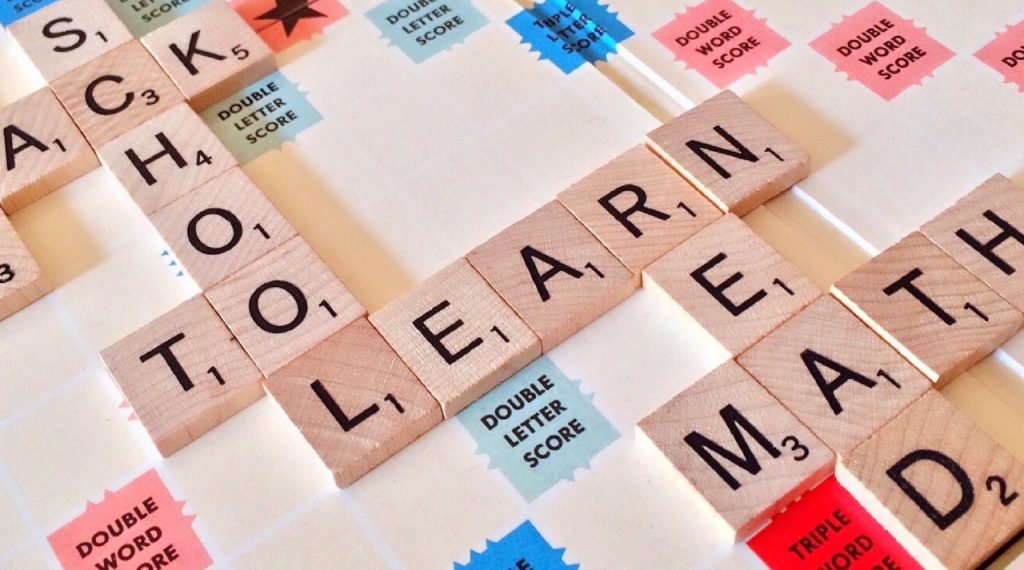So, you’ve got your eye on the prize and want to become a Scrabble champion? Well, you’re in luck. This article is chock-full of tips and strategies designed to boost your word-building skills and put you on the fast track to Scrabble success. Yes, it’s time for you to step up your game!
To win and triumph with style, one needs an arsenal of techniques at their disposal. And hey, who knows? With practice and dedication – plus a little help from us – you could be outclassing opponents left and right soon! Ready to dive in? Let’s get started on making you the best Scrabble player possible.
Understand the Rules, Scoring System, and Scoring Strategy
Before diving into Scrabble, it’s important to get a firm grasp on the rules. The basics are simple: each player randomly draws seven tiles from the bag. Your goal is to form words on the game board using tiles that connect with words already played.
Scoring in Scrabble is about more than just forming any word, though. You’ll want to watch for opportunities to rack up high points. Each letter has a different point value, ranging from 1 (for common letters like ‘E’ or ‘A’) to 10 (for less common letters like ‘Q’ or ‘Z’).
Additionally, there are special squares on the board that can double or triple your score:
– Double Word Score (light red square): The word’s total point value is doubled.
– Triple Word Score (dark red square): The word’s total point value is tripled.
– Double Letter Score (light blue square): The individual letter placed here gets doubled.
– Triple Letter Score (dark blue square): The individual letter placed here gets tripled.
It’s crucial to remember that multiple bonus squares stack their effects! So if you hit two Double Word Scores with one play, your score for that move will be multiplied by four.
Now let’s talk about strategy. It might be tempting to go for big words every time, but sometimes short words can yield more points, especially when using high-value letters or landing on bonus squares. Also, remember that keeping balanced vowels and consonants in your rack helps maintain flexibility for future turns.
A key part of the scoring strategy involves defensive play; try to create high-scoring opportunities and block those same opportunities for your opponents. By understanding how scores are calculated and strategizing accordingly, you’re already well on your way toward becoming a formidable Scrabble champion!
Develop a Plan of Attack to Maximize Your Game’s Potential
Like any strategic game, Scrabble requires you to approach it with a solid plan. To be a champ, you need more than just word knowledge; you also need tactical prowess. Here are some strategies that will help maximize your game’s potential.
Firstly, learn the two-letter words. They seem insignificant but are crucial in building parallel words and scoring big points. It’s surprising how often letters like ‘Q,’ ‘Z,’ ‘X,’ and ‘J’ pop up in these short words.
Secondly, take into account the power of prefixes and suffixes. They can turn ordinary words into high-scoring ones. For instance, adding “re-” or “-ing” can significantly increase your score.
Next on our list is word placement. Always aim for the premium squares: double letter (DL), triple letter (TL), double word (DW), and triple word (TW).
Remember, though, while utilizing these squares for your benefit is important, try not to set them up for your opponent!
Another vital tip is saving the S and blank tiles as long as possible. The S tile allows you to pluralize any word on the board, while blanks can substitute for any letter.
Finally, practice makes perfect! Regularly playing Scrabble will hone your skills over time.
Know the Two-Letter Words and Practice Using Them in Your Game
Believe it or not, two-letter words can be a game-changer in Scrabble. They’re often overlooked but can pack a serious punch when used correctly. Let’s dive into why these short little powerhouses are so important.
First, you’ll find that two-letter words open up possibilities on the board that you might’ve missed otherwise. If you’re stuck with tough tiles like Q, Z, or J, knowing two-letter words can help you offload them quickly and score big points at the same time. For example: ‘qi,’ ‘za,’ and ‘jo.’
Not only do these tiny titans help you get out of tight spots, but they also allow for more strategic play. You could use them to block an opponent’s potential move or connect distant parts of the board.
Try incorporating these tips into your gameplay:
* Keep a list of two-letter words handy
* Practice using them in mock games
* Remember—every letter counts!
It’s not about memorization alone; it’s about effectively leveraging these mini magic-makers in your favor. What is the best way to master this? Regular practice! The more you play, the better acquainted you’ll become with this toolset.
Familiarize Yourself with Common Word Patterns Like Prefixes and Suffixes
Let’s dive into the last part of your journey to becoming a Scrabble champion – getting familiar with common word patterns. It’s an essential strategy that’ll give you an upper hand in any game.
You’ve probably noticed that words aren’t just random letters strung together. They follow certain patterns or structures, like prefixes and suffixes. A firm grasp on these can significantly improve your ability to form words during games.
Prefixes are sets of letters placed at the beginning of a word to modify its meaning. Examples include ‘un-,’ ‘re-,’ and ‘pre-.’ On the other hand, suffixes come at the end of a word, also changing its meaning or function in some way. Think ‘-ing,’ ‘-ed,’ and ‘-ly.’
Here’s why they’re crucial for your Scrabble gameplay:
* Boost Available Words: Adding a prefix or suffix to an existing word on the board allows you to create new ones without needing many extra tiles.
* Increase Point Score: Crafting longer words using prefixes or suffixes means more points racked up.
* Strategic Tile Placement: Using these elements allows you to take advantage of premium squares on the board, leading to higher scores.
To get started with this strategy:
1. Study popular prefixes like ‘un-‘, ‘re-‘, ‘in-‘, ‘dis-‘ and others.
2. Get comfortable with commonly used suffixes such as ‘-ing,’ ‘-ed,’ and ‘-er.’
3. Try incorporating them into your practice games until it becomes second nature.
Remember, this doesn’t happen overnight; it requires time and practice.
The key takeaway here? Treat every letter tile as potential scoring gold! With knowledge about prefixes and suffixes under your belt, you’ll be well-equipped to form words and craft strategic plays that could lead you straight to victory!








